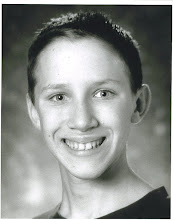It's difficult for me to really talk about New York. I've spent my life in a leafy suburb of a leafy city, and the Twin Cities also largely seem to lack the gritty, industrial, asphalt might that New York shoves in your face the minute the clouds break and the five boroughs come in to view during a LaGuardia descent. To catapult yourself into New York City is to truly grasp at the notion of what Anne Spirn called "The Granite Garden;" a meticulously controlled, intensely contested, bluntly grim lattice of concrete and steel boxes where the bitter cold wind only intensifies the trademark New York cold shoulder. And yet, despite this island's fierce landscape and unwelcoming appearance, humanity seems to thrive here. Sometimes it feels as though every block of every borough is a significant cultural institution, a tribute to American ingenuity and labor that such a dense, dirty old city of steel can thrive with such flair and personality. I've almost started to pick up the arrogant world view espoused by East Coasters that the country ends on the Hudson; after a week on these islands carefully divided into cartesian grids and blocks, Oregon and Minnesota just seem so far away, like such abstractions, and without much internet access I feel like the tribulations of Portland's mayor or the midwest's harsh wind chill could be a world away. As I sit in the International House, a giant dormish building for international students at NYC schools, I keep placing myself on this mental map in the Upper West Side, surrounded by neighborhoods of varying ethnic background and socioeconomic status, thinking about the tales of power struggle and the astonishing ability of New Yorkers to challenge the outside forces that attempt to break their neighborhoods, be it gentrification, terrorism, environmental racism, pollution, segregation, or any of the other urban ills that have threatened the livelihoods of citizens of these islands. The other night, we went to an improv comedy club on the lower east side. While I enjoyed their dorky jokes about video games and pop culture references to musicians, I was most struck by the way the crowd and the comedians appropriated the latest story in the city. Somehow, the comedians ended up on a plane, and the skit involved a plane crash with that pilot that miraculously guided the plane into the river and avoided death and destruction. While the story has a happy ending and a hero was made, I would have assumed that jokes about plane crashes we're still a bit of an uneasy topic here. And yet, after a quiet beat shared by the audience and the comedians, they took it and ran with it, joking about how awesome the pilot was and how he could land a plane no matter how shitty the situation. The last week has given me rose-tinted happy glasses to wear when thinking about the American Dream, and the co-opting of fear and uncertainty into the austere bravado of a city of dreamers, thinkers and idealists seems like an appropriate example of something this country does right.
I am amused by the fact that you can't spell either audacity or authenticity without the word "city."
I am here until Thursday, at which point I depart for Pinheiros, a wealthy neighborhood in Sao Paulo. For some reason, they decided that I should be the guy who gets slated to lead the 35 of us through John Fitzgerald Kennedy International Airport. We're screwed.





No comments:
Post a Comment